The Black Badge of Shame
How a bad system can corrupt good apples.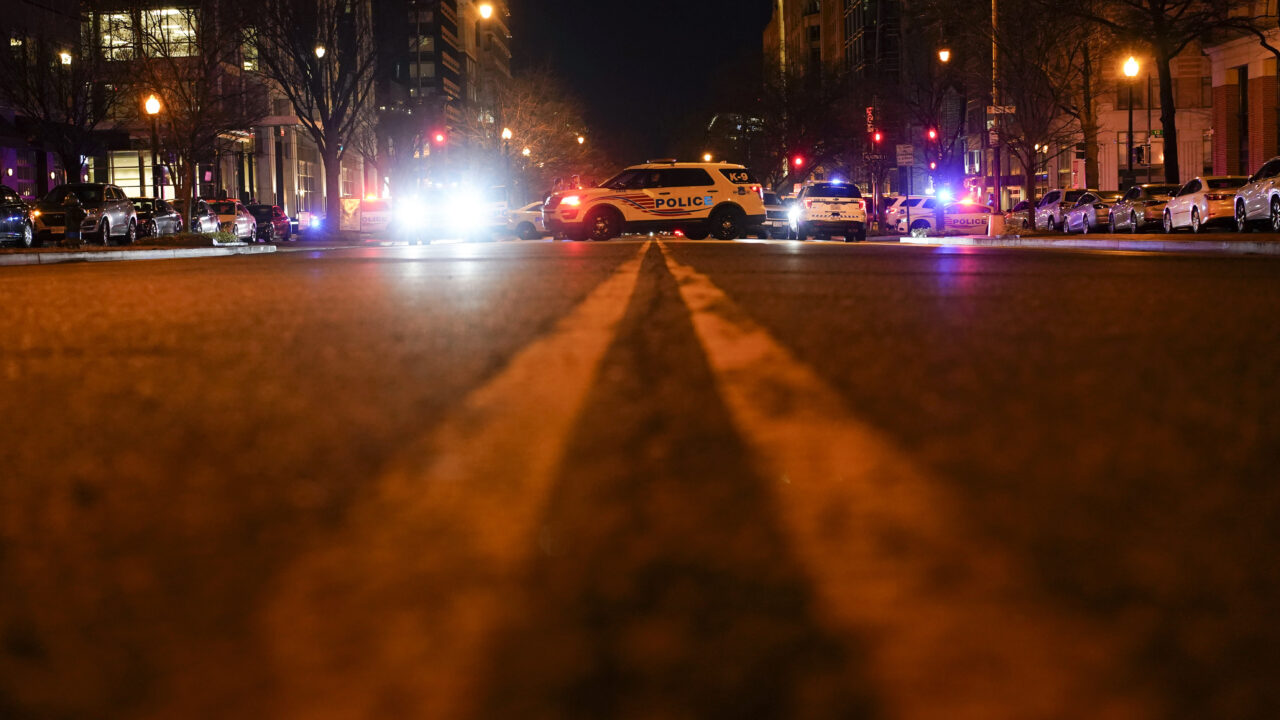 A police vehicle blocks part of K Street as demonstrators gather to protest Friday, Jan. 27, 2023, in Washington, over the death of Tyre Nichols, who died after being beaten by Memphis police officers on Jan. 7. (AP Photo/Carolyn Kaster)
A police vehicle blocks part of K Street as demonstrators gather to protest Friday, Jan. 27, 2023, in Washington, over the death of Tyre Nichols, who died after being beaten by Memphis police officers on Jan. 7. (AP Photo/Carolyn Kaster)
But don’t let it be a black and a white one
’Cause they’ll slam ya down to the street top
Black police showin’ out for the white cop
—N.W.A. “Fuck tha Police”
The first time I saw a gun in real life, it was in a cop’s hand. He was pointing it at my head. I was 10. During a wondrous Southern California summer, my preteen friends and I came across three abandoned newspaper vending machines in an empty lot. We were trying to extract the coin box’s clinking quarters when the first patrol car came to a stop and the armed cop jumped out. He had to squat to line up with the bridge of my 10-year-old nose.
As a kid, I had seen cops beat up older boys and men in our Eastside Long Beach neighborhood with such frequency that I thought it was legal. I thought that’s what the word “policing” meant. Because it was policing in my Black neighborhood.
Witnessing blue on Black violence up close created an intense fear within me. I was ashamed of this fear so I let it morph into hate, which my pride found more acceptable. You will find lots of hate for police in Black neighborhoods nationwide because the police have beaten so much shameful fear into Black bodies nationwide. Responding to the controversy following hip-hop group N.W.A.’s 1988 release of “Fuck Tha Police,” Ice Cube, one of the group’s rappers, then a 20-year-old, said, “There is a lot of resentment of police because if you are Black you get picked on a lot.”
“The first time I saw a gun in real life, it was in a cop’s hand. He was pointing it at my head. I was 10.”
The resentment, fear, shame and hate only get more complicated when you experience what Ice Cube called, “Black police showin’ out for the white cop.”
Bodycam footage of the Jan. 7 Tyre Nichols traffic stop shows white Memphis police officer Preston Hemphill saying, twice, “I hope they stomp his ass,” after Nichols ran for his life. The five Black officers who chased and caught Nichols “showed out” for the white cop and each other — because they’ve been absorbed into white cop culture.
Clinical psychologist Patricia Gay told Truthdig, “Systems of oppression require loyalty and complete absorption. When Black cops are among white cops, they have to prove themselves to the system, prove themselves to the inhumanity.” Gay, who had a long career as a psychologist in Los Angeles County and is now in private practice, believes that anti-Black police culture becomes so internalized that Black cops begin to see Black folks as the enemy. “When you are a Black officer in a system this monstrous, you have a lot to prove to the system and those who control it. You have to make sense of what you’re doing. This making sense involves making your people the enemy, making them criminals, thieves and murderers.”
It was the inhumanity exhibited by the five Memphis officers (Demetrius Haley, Desmond Mills, Emmitt Martin, Justin Smith and Tadarrius Bean) that touched a raw nerve inside me — and inside so many other African Americans. Assaulting Nichols was personal for them. Five Black men representing a historically anti-Black institution viciously beat another Black man to death like they hated him — because he was Black. Like them. That’s what made it personal for them. And me. America has taught Black people to hate ourselves throughout history and these five Black officers learned this history lesson well. But they couldn’t beat themselves to death. Tyre Nichols would have to pay the tuition for learned self-hate. So they “stomped his ass” like drivers obeying the dictates of a plantation overseer.
“It was the inhumanity exhibited by the five Memphis officers (Demetrius Haley, Desmond Mills, Emmitt Martin, Justin Smith and Tadarrius Bean) that touched a raw nerve inside me — and inside so many other African Americans. Assaulting Nichols was personal for them.”
“Drivers were enslaved people who plantation owners or overseers put into position to mete out punishment to other enslaved people,” historian Leslie Alexander told Truthdig. Alexander specializes in the history of slavery and Black political thought at Rutgers University. “Enslaved drivers were authorized by the plantation owner to whip other enslaved people. That was their job. Just like it was the job of some enslaved people to pick cotton.”
Maybe that’s why I felt especially disturbed seeing the monstrous assault on Nichols. I felt ashamed. Watching five Black men beat another Black man to death — like it was their job. As if they were drivers.
Shameful.
Tyre Nichols’ mother, RowVaughn Wells, said, “They have brought shame to their own families. They brought shame to the Black community.”
Watching the assault videos, I thought: Why didn’t at least one of those Black officers say something or do something to stop this inhumane beating sooner? Why didn’t one Black man do the humane thing towards another Black human being?
“Police culture is toxic,” said a Black 15-year police veteran in Oregon, who asked Truthdig that his name not be used, and who now serves on his department’s community relations team. “The culture of law enforcement is one that does not accept individuality. From my experience, the culture creates an ‘us’ versus ‘them’ mentality. You may not come in with that mentality but you embrace it because you want to be affirmed by the people who are initially training you, then working by your side and affirmed by the people leading you. The toxic ‘us’ versus ‘them’ mentality doesn’t make room for thorough empathy.”
“Why didn’t at least one of those Black officers say something or do something to stop this inhumane beating sooner? Why didn’t one Black man do the humane thing towards another Black human being?”
It is this lack of empathy towards another Black life that makes the shame I feel so stark. Though Alexander said the anti-Black history of American policing has its antebellum roots in patrollers known as “paddy rollers,” who chased the enslaved, there are still Black people who think they can join modern police forces and change the system from the inside. “White officers had been such a scourge in Black communities that many Black folk felt [that] once more and more Black police officers joined departments, it was going to change the system of policing in our neighborhoods,” Alexander said, and then paused. “But even good people in a corrupt system will become corrupt. It’s not a few bad apples corrupting a good system. It’s the other way around: A bad system corrupting good apples.”
Your support matters…Independent journalism is under threat and overshadowed by heavily funded mainstream media.
You can help level the playing field. Become a member.
Your tax-deductible contribution keeps us digging beneath the headlines to give you thought-provoking, investigative reporting and analysis that unearths what's really happening- without compromise.
Give today to support our courageous, independent journalists.
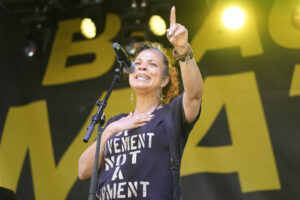
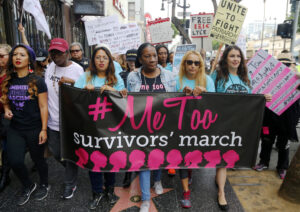
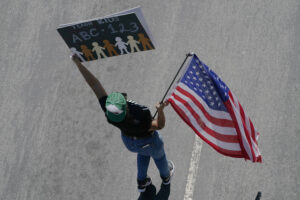
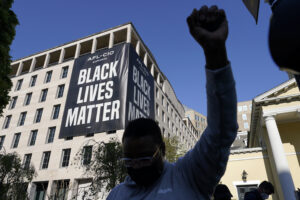
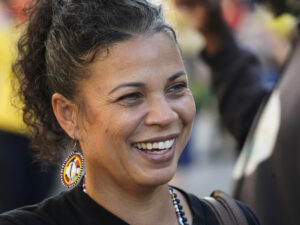
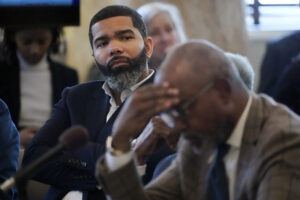
I hate to see a good man feeling extra shame because his particular group is not perfect. Speaking as a white gay woman who has experienced lots of oppression but am now old and wise (?) let me say that I too thought we had to be perfect before we had a claim to any sympathy or pride. So I was horrified when I learned about Roy Cohan, the gay Nazi’s and other authoritarian gay...
I hate to see a good man feeling extra shame because his particular group is not perfect. Speaking as a white gay woman who has experienced lots of oppression but am now old and wise (?) let me say that I too thought we had to be perfect before we had a claim to any sympathy or pride. So I was horrified when I learned about Roy Cohan, the gay Nazi’s and other authoritarian gay people. How COULD we? We’re better than that!!! Well, we aren’t. No one is. Everyone is capable of oppressing their own kind. Almost no one has true solidarity in the face of oppression. ‘50’s psych studies proved that. So please don’t feel shame because your group is human. Feel bad because this kind of BEHAVIOR is human. And grotesque. And based on fear and power and separation. And any group is capable of feeling those things. And the elites know that and play on it. So we need to start embracing our brothers and sisters, yes pointing out their flaws, but not pretending that they did something none of us is capable of.